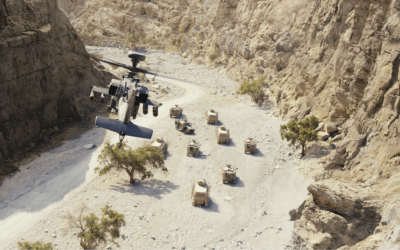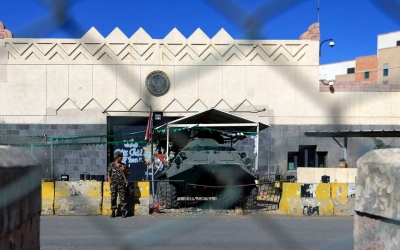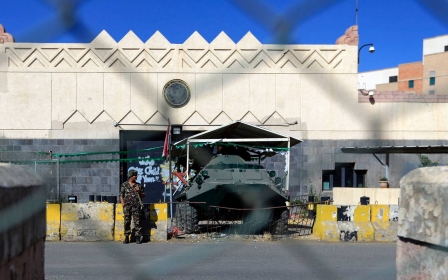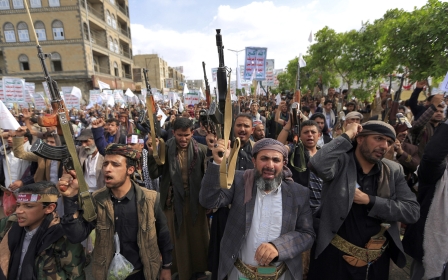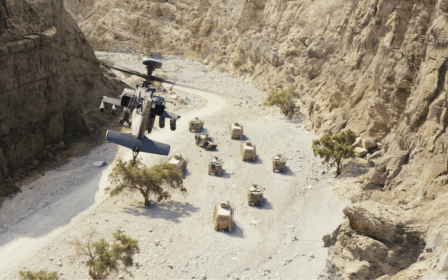Yemen: Saudi-led coalition says troops redeploying, not withdrawing
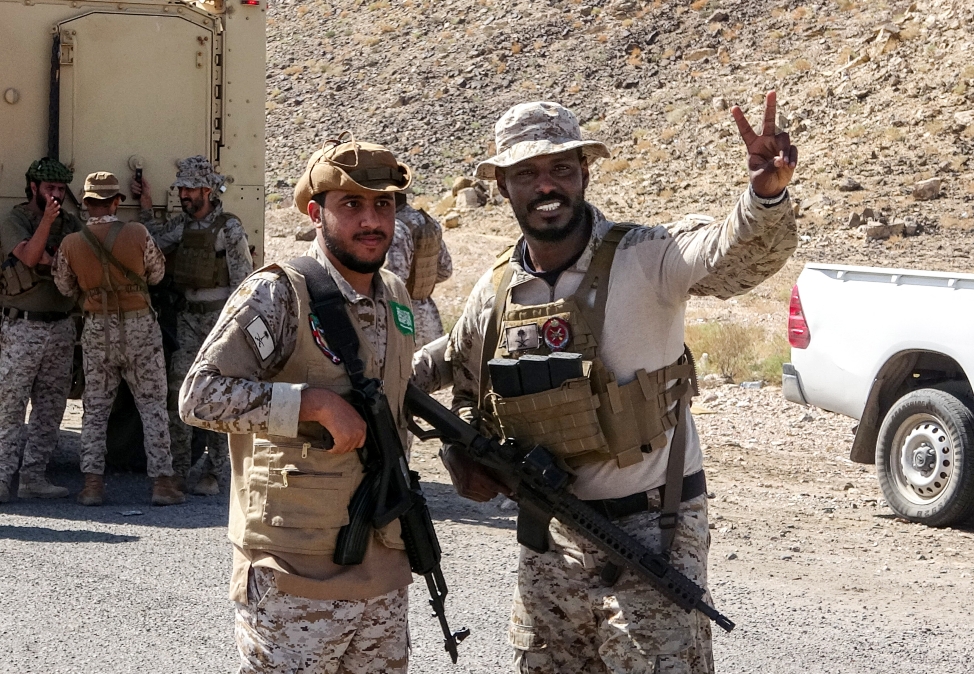
The Saudi Arabia-led coalition fighting rebel Houthis in Yemen said on Wednesday its troops were redeploying in line with its strategy to support Yemeni forces, but were not withdrawing.
Yemeni security sources told Reuters the Saudi military had withdrawn from a major military base in Burayqah district in the southern port city of Aden, removing troops, hardware and heavy artillery.
New MEE newsletter: Jerusalem Dispatch
Sign up to get the latest insights and analysis on Israel-Palestine, alongside Turkey Unpacked and other MEE newsletters
Some of the troops and equipment were loaded onto warships in Aden port, while others flew out from the city's airport, the sources said.
Long convoys of the kingdom's military were seen on Tuesday heading from Burayqah military base to Aden port, witnesses said.
General Turki al-Malki, the spokesman of the Saudi-led coalition, told Reuters reports circulating about a Saudi military withdrawal from south Yemen were "baseless and unfounded".
"Movement and redeployment of troops based on operational and tactical assessment" was a standard operation "in all military forces across the world," Malki said.
US pressure
Saudi Arabia has faced intense diplomatic pressure from the United States and the United Nations to end the seven-year-old conflict that has killed tens of thousands and put millions at risk of starvation.
US Envoy to Yemen Timothy Lenderking visited Riyadh this week as Washington pressed Saudi Arabia to lift a blockade on Houthi-held ports, a condition from the group to start ceasefire talks.
However Riyadh first wants US weapons to help the kingdom strengthen its defence systems following Houthi attacks on its territory with drones and ballistic missiles.
The US State Department approved its first major arms sale to Saudi Arabia under US President Joe Biden with the sale of 280 air-to-air missiles valued at up to $650m, the Pentagon said last week.
Late on Wednesday, heavy blasts were heard across the Yemeni capital Sanaa following air strikes by the coalition's warplanes, residents said.
This followed several ballistic missiles fired by the Houthis on Saudi southern regions and the Yemeni provinces of Marib and Taiz, a Houthi military spokesman said.
Ambassadors of the five permanent UN Security Council members also held a meeting with Saudi ambassador to Yemen, Mohammed al-Jaber, where they stressed the need for de-escalation, including an immediate end to hostilities in Marib region.
"All Yemeni parties should engage in genuine dialogue in order to reach comprehensive political solution to end the crisis in Yemen and alleviate the humanitarian suffering of its people," a statement issued after the meeting said.
Houthi leaders blacklisted
The UN Security Council blacklisted three Houthi leaders on Wednesday for threatening the peace, security and stability of Yemen, subjecting them to a global asset freeze and travel ban and a targeted arms embargo.
The 15 council members agreed by consensus to impose sanctions on the head of the general staff leading the Houthis' Marib offensive, Muhammad Abd al-Karim al-Ghamari; a leader of Houthi forces assigned to the Marib advance, Yusuf al-Madani; and the Houthi's assistant defence minister, Saleh Mesfer Saleh al-Shaer, who is accused of helping the group acquire smuggled arms and weapons.
The coalition led by Saudi Arabia and the United Arab Emirates (UAE) intervened in Yemen in 2015 after Houthi forces ousted the internationally recognised government from Sanaa. The Houthis say they are fighting a corrupt system and aggression by Saudi-led forces.
The UAE has scaled down its military presence in the country since 2019.
Middle East Eye delivers independent and unrivalled coverage and analysis of the Middle East, North Africa and beyond. To learn more about republishing this content and the associated fees, please fill out this form. More about MEE can be found here.


